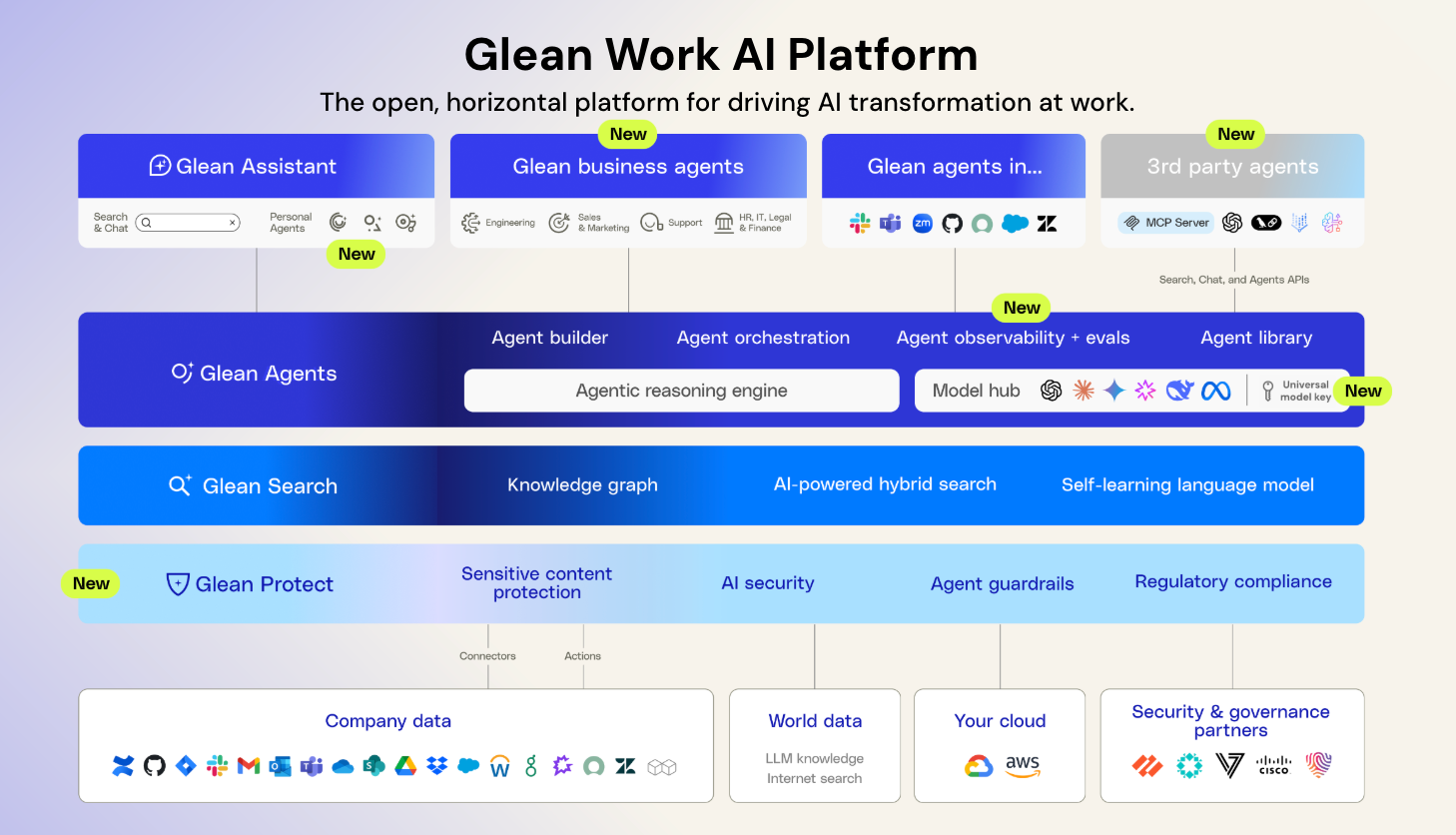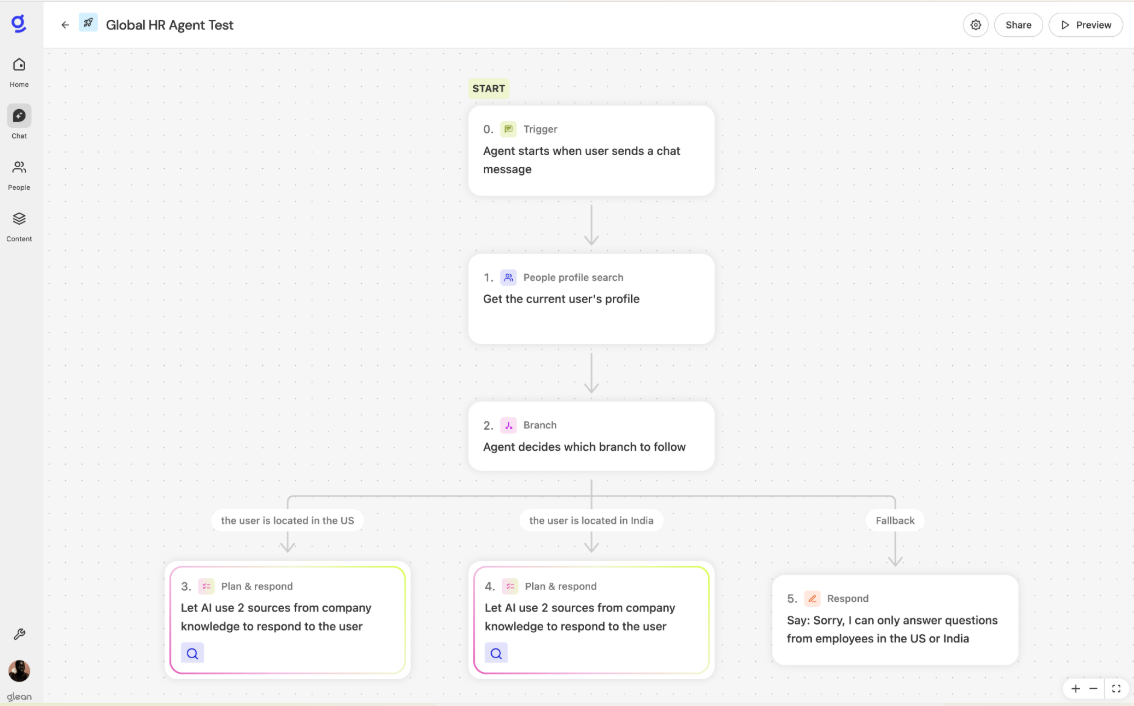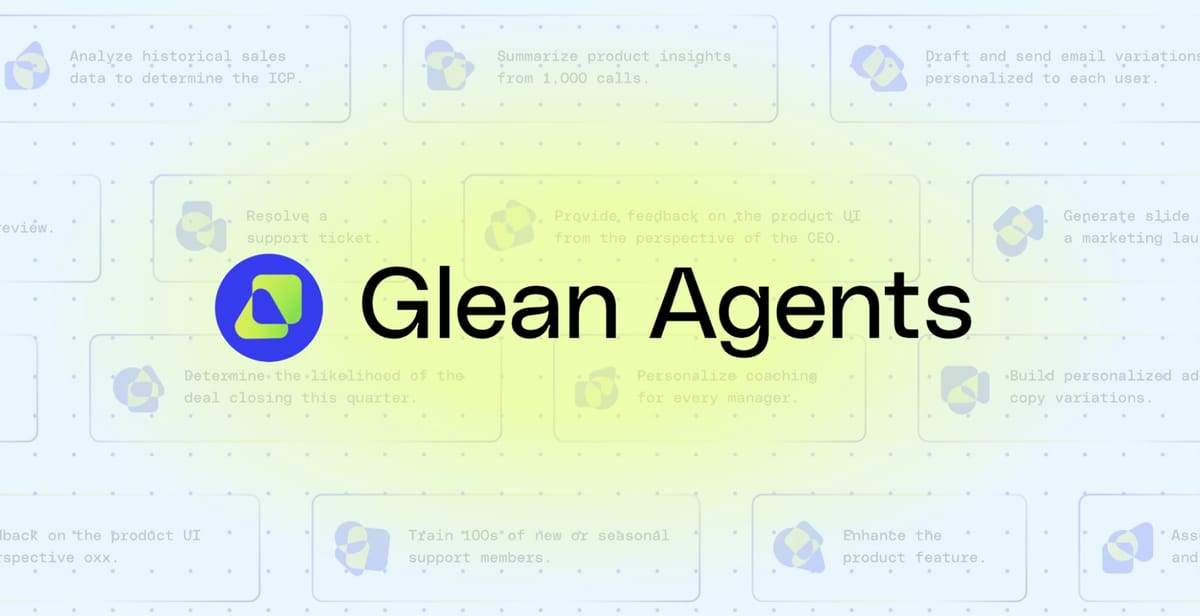Glean just made a big push to bring AI agents out of tech demos and into actual workplaces. The company today announced the general availability of Glean Agents, an open platform for building, deploying and managing AI agents across enterprise environments. It's a significant expansion of Glean's work AI offerings, with dozens of pre-built agents, broader language model support, and enhanced security measures designed to make AI agents practical for everyday business use.
Key Points
- Dozens of prebuilt, customizable agents for business and personal workflows.
- Broad LLM choice and per-step model tuning for quality, speed, and cost.
- New MCP Server and open APIs enable secure agent interoperability at scale.
- Built-in governance, observability, and on-prem deployment via Dell partnership.
The enterprise AI space is littered with experimental agent technologies that never quite make it to widespread adoption. Glean is tackling the core reasons why: fragmented tools, limited data access, inconsistent performance, and security concerns that have kept promising agent technology stuck in proof-of-concept purgatory.

"AI agents should be in the hands of every employee and driving outcomes across the entire enterprise," said Arvind Jain, Founder & CEO of Glean. "Glean Agents turns that vision into a reality with an open, interoperable platform that integrates across systems, supports leading LLMs, and makes it easy to build and scale agents that actually move the business forward."
At the heart of Glean's announcement is an open, model-agnostic approach. Organizations can now select specific language models for different agent tasks, optimize for quality, speed, or cost, and leverage models across Amazon Bedrock, Google Vertex AI, and Azure OpenAI. A new "universal model key" provides access to 15 leading LLMs across major providers, eliminating the need to procure models individually.
For companies concerned about keeping sensitive data on their own infrastructure, Glean announced its first on-premises deployment architecture through a partnership with Dell. This collaboration will allow enterprises to run Glean's search and agent technologies within their own data centers on Dell's AI Factory infrastructure.
Glean is also directly addressing the practical challenge of adoption with over 30 pre-built "quickstart" agents for common business functions across sales, engineering, IT, and HR. These ready-made agents can handle tasks like sales prospecting, ticket resolution, code review, and helpdesk automation, potentially shortening the time to value for organizations looking to implement AI agents.
"With Glean Agents, we're just beginning to explore the possibilities — from accelerating content creation to streamlining cross-functional collaboration — and we're really excited about the potential impact and the limitless possibilities the platform can unlock across our teams," said Tadeu Faedrich, Senior Engineering Manager at Booking.com.
The platform includes several noteworthy productivity upgrades, including personal agents for meeting preparation and action item tracking, a deep research agent that combines company and external knowledge for thorough, citation-backed research, and a natural language agent builder that lets employees create agents by simply describing desired outcomes.
On the security front, Glean has introduced "Glean Protect," featuring safeguards against prompt injection attacks and jailbreak attempts, sensitive content detection across connected systems, and granular permissions controls for agent access.
Industry analysts view platforms like Glean as essential to moving AI agents from experimental to operational. "As organizations look to operationalize AI across their workforces, the ability to build, orchestrate, and manage agents at scale is becoming a critical requirement," said Andrew Gens, Research Analyst for AI Software at IDC. "Success depends not just on innovation, but on control, interoperability, and enterprise alignment."

While some features like the natural language agent builder, agent library, and pre-built integrations are available immediately, others including agent triggering, observability tools, and the Glean Agents API are currently in beta. The company says additional capabilities like agent routing and enhanced sensitive content models are coming soon.
What's notable about Glean's approach is its focus on practicality rather than just raw technical capabilities. By addressing the full stack of enterprise concerns — from model access to security to ease of deployment — Glean seems to be taking aim at the messy reality of organizational AI adoption rather than just showcasing what's theoretically possible.
The question remains whether enterprises are ready to give AI agents this level of autonomy and integration. But by focusing on specific, bounded use cases and building in controls, Glean is making a case that the time for enterprise AI agents has arrived.

